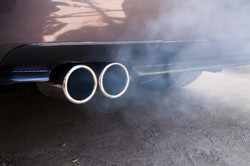Usable energy from waste heat
Small amounts of energy abound in the environment in the form of heat, light, sound and vibration. Most of this energy is wasted. Individual sources are in such small amounts that they cannot really supply useful power to devices, and efficient and cost-effective technology has not been available to exploit them. With energy harvesting, devices capture such energy from one or more sources, storing and accumulating it and even converting it to a more useful form for a given application. The EU-funded project NEXTEC (Next generation nano-engineered thermoelectric converters - From concept to industrial validation) used nano-structured skutterudites (SKTs) and bismuth telluride to develop TE modules for electric power and cooling applications, respectively. The high-temperature TE properties of SKTs make this material suitable for waste heat recovery in cars in temperatures of approximately 600 °C. Other than performing better at high temperatures, the newly developed material also solved many issues associated with thermal expansion and thermal stresses. Scientists also developed test benches and simulation models to test the performance of the developed power generation modules. A comprehensive life-cycle assessment analysis of SKT-based TE modules was performed to determine the environmental and toxicological impact of the nanomaterial for electricity generation from automobile exhaust gases. Cytotoxicity studies of SKTs suggested that their toxicity should likely be similar to that of their metal components. The nano-structured SKTs reduce thermal conductivity, helping to deliver more electric power to cars. Such a material could also find use in industries where there is wasted heat. NEXTEC resulted in over 40 publications in conference presentations and journals.







